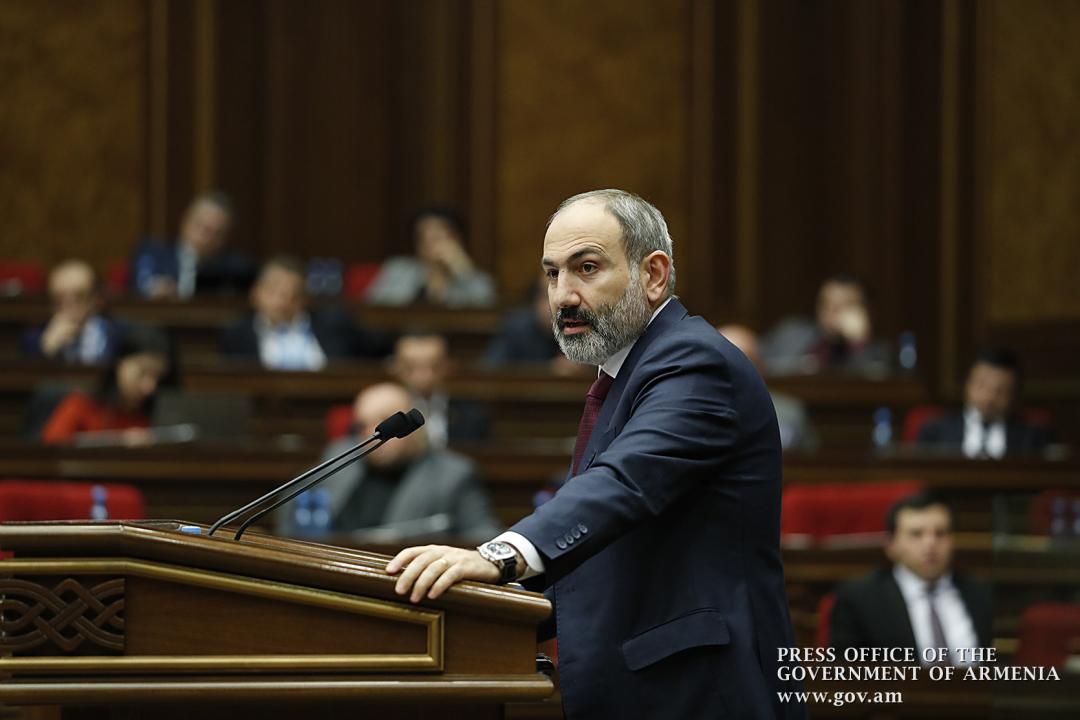
Armenia and Azerbaijan Agree on Majority of Peace Deal, Pashinyan Urges Immediate Signing

Yerevan and Baku have reached a full agreement on 13 out of the 17 articles in the peace agreement. Armenia’s Prime Minister Nikol Pashinyan announced that Yerevan proposed a new approach to Baku, suggesting that the parties sign the agreed articles now and defer the discussion of unresolved issues.
Pashinyan explained that this is feasible because the fundamental principles of peace between Armenia and Azerbaijan have already been captured in the agreed-upon articles. The proposal is to sign and ratify these agreements while continuing to address remaining issues in the future.
Although most of the language for three additional articles has been agreed upon, Pashinyan did not disclose the specifics of the 13 agreed articles or the one remaining unresolved article during the over two-hour press conference. He clarified that the document cannot be unilaterally disclosed during ongoing negotiations but assured that the public is familiar with the key principles outlined in the agreement.
Until now, Baku has been known to oppose the inclusion of the Alma-Ata Declaration in the peace agreement. Additionally, it has been reported that the issue of unblocking communications has been removed from the document. According to official statements from Yerevan, the developed agreement does not include provisions for the return of Nagorno-Karabakh residents. Given these points, it remains unclear what specific issues the parties are still unable to agree on.
In recent days, as Moscow continued to express its readiness to mediate and support the negotiations, Nikol Pashinyan emphasized that while he values the support of international partners, he considers the bilateral format of negotiations with Baku to be more effective. He pointed out that talks without mediators have already produced some positive outcomes, such as the agreement at the end of last year that led to the release of prisoners, as well as the April 19 announcement on partial demarcation and the signing of the demarcation regulation, which both parties confirmed yesterday. He argued that a country that accuses Armenia of sabotaging this issue cannot serve as a mediator. He specifically referenced Russian Foreign Minister Sergey Lavrov's accusation that Yerevan was sabotaging the agreement on unblocking communications in the Syunik region, which connects the western regions of Azerbaijan with Nakhchivan. Despite these tensions, Pashinyan affirmed that Armenia does not intend to withdraw its signature from the joint trilateral statement of November 2020, which includes commitments to unblock all communications in the region.
Armenian PM Nikol Pashinyan reiterated that Armenia firmly rejects the idea of providing a road through its territory if it compromises the country's sovereignty. However, he affirmed that Armenia is ready to open a road for Azerbaijan immediately as long as Armenia’s legislation and regulations are respected. Pashinyan also mentioned the possibility that private security companies could manage road safety. However, he did not specify whether these would be international or local firms.
He added that Armenia is exploring additional mechanisms to address the issue. A special commission within the National Security Service has been established, tasked with finding solutions to this matter. Moreover, Pashinyan suggested that additional security functions could be introduced in line with ongoing legislative reforms. For instance, licensed depository organizations in Armenia could potentially carry out security-related activities.
Pashinyan also addressed the issue of the return of Armenians who left Nagorno-Karabakh, calling it unrealistic "in the logic in which this issue is now formulated by some former representatives" of the separatist regime. He noted that those advocating for the return had signed the decree on the dissolution of Nagorno-Karabakh Republic and had urgently left the region themselves.
Azerbaijan's reaction
On September 2, Hikmet Hajiyev, the Assistant to the President of Azerbaijan and Head of the Foreign Policy Affairs Department of the Presidential Administration, criticized Armenian Prime Minister Nikol Pashinyan for his remarks concerning the dissolution of the Minsk Group. Remarkably, Pashinyan said that the Minsk Group could be dissolved after all issues [related to the conflict] between Armenia and Azerbaijan are resolved.
Hajiyev accused Pashinyan of resorting to "lies and distortions" in his comments. Hajiyev asserted that the Minsk Group had long outlived its usefulness, stating, "The time for the dissolution of the Minsk Group is long overdue, and there is no need for such an institution." He argued that Armenia's ongoing efforts to keep the Minsk Group relevant attempt to create the false impression that the conflict with Azerbaijan remains unresolved, thereby maintaining a means of influence with its supporters in the West.
Addressing Pashinyan's comparison of the constitutions of Armenia and Azerbaijan, Hajiyev highlighted that the Armenian constitution still includes a clause making territorial claims against Azerbaijan, specifically regarding the “annexation of Karabakh to Armenia,” based on the act of independence. He emphasized that until this clause is amended, significant obstacles will remain in the path toward a peace agreement between the two countries.
"Armenian society itself must amend the constitution, removing that clause and reference, once again affirming its desire to live in peace," Hajiyev stated. He contrasted this with the Azerbaijani constitution, which, according to him, does not contain territorial claims against any state and reflects "the rightful will of the Azerbaijani people." He dismissed Pashinyan's comparison as “mere wordplay.”
See Also


Mirzoyan Meets US Deputy Assistant Secretary Joshua Huck

Azerbaijani President Holds Talks with UAE and German Business Delegations on Economic Cooperation

Grigoryan Confirms Armenia’s Readiness to Dissolve OSCE Minsk Group Upon Peace Treaty Signing

Azerbaijani Official Warns of Ecological Risks to Caspian Sea, Similar to Lake Urmia and Aral Sea

